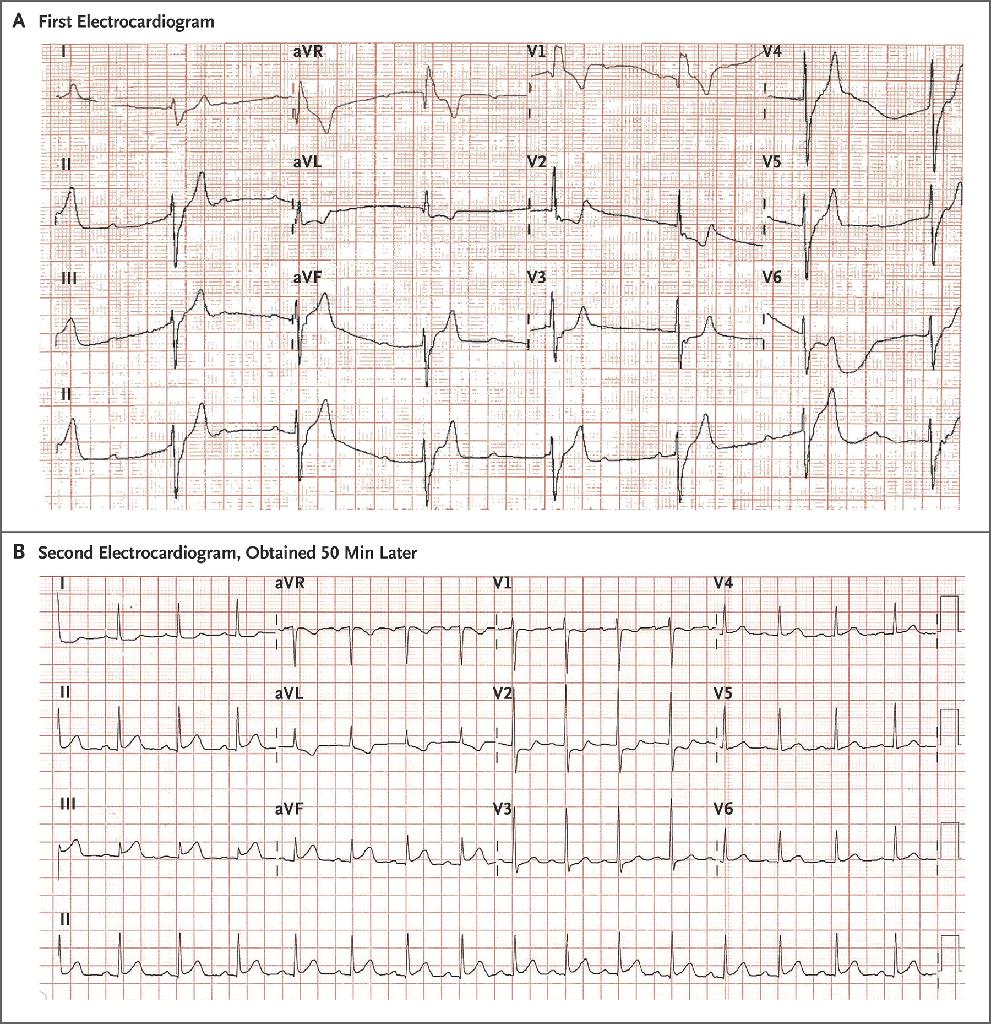What Would You Do?
Posted by Jeremy Windsor on Jun 7, 2024
What limits do you apply when it comes to treating yourself? Most of us restrict ourselves to over-the-counter medications and pulling out a splinter or two, but in remote locations many of us are forced to go a step further. Here's a summary of a fascinating case study that was previously published in the New England Journal of Medicine…
A 44 year old male nurse presented with severe chest pain and dizziness to a health clinic in Coral Bay, a remote settlement 1200km from Perth and 150km from the nearest hospital. What made this case exceptional was that the patient was the only member of staff on duty that day. He subsequently contacted members of the local St John Ambulance for help and via video link sent a series of ECG’s to emergency physicians working for the Emergency Telehealth Service (ETS) in Perth.
The ECG on presentation showed complete heart block, right bundle branch block, hyperacute T waves in the inferior leads and reciprocal ST-segment depression in the antero-lateral leads. Fifty minutes later, the second ECG revealed sinus tachycardia with 2mm of inferior ST-segment elevation and reciprocal ST-segment depression in the anterolateral leads...

A diagnosis of acute myocardial infarction was made.
The patient inserted cannulae into both of his anterior cubital fossae and self administered aspirin, clopidogrel, sublingual nitroglycerin, intravenous heparin and opiate analagesia. With the help of the St John volunteers, defibrillation pads were attached and adrenaline, atropine and amiodarone were prepared for use in the event of a cardiac arrest. Using a real time video link, the patient set up and subsequently administered tenecteplase thrombolysis. Fortunately, this was successful - the ST-segment elevation resolved and symptoms quickly improved. He was transferred to Perth by the Royal Flying Doctor Service and the next day underwent coronary angiography that revealed severe stenosis of the right coronary artery. Following insertion of a stent, he was discharged home 48 hours later.
According to the authors of the case study,
"The actions of this patient are likely to have had a substantial beneficial effect on the clinical outcome. However a person’s self management of a myocardial infarction cannot be considered medically appropriate if any other option is available…”
An interview with the patient can be found here.
If this is your sort of thing why not take a look at other posts on the blog? Better still, join the British Mountain Medicine Society! More information can be found here.
For more about the University of Central Lancashire's Diploma in Mountain Medicine (DiMM) take a look at this.
Comments
Leave a comment.



 )
)
07/06/2024 @ 06:07:56 Hannah Lock
Amazing. What a legend.
Reply? Suspend Delete